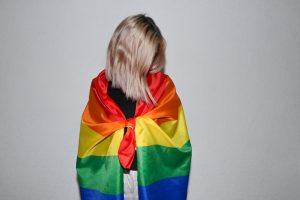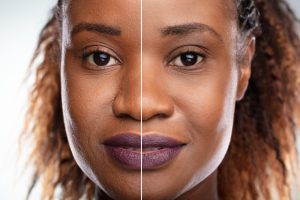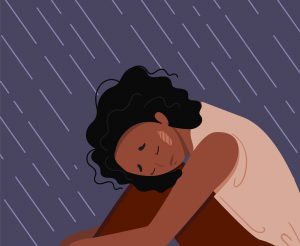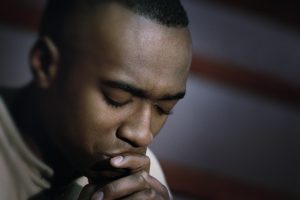A driving force in recent years is a more counselor awareness of multicultural differences between people. As the world becomes smaller and more and more different ethnic and religious communities interact, the reality that individuals with very different views is becoming more and more common. Simply through social media, the interaction between different individuals with diverse backgrounds has increased over the years. Counselors also are coming into more contact with others of different beliefs and cultures and it is important for counselors to understand cultural issues within a client and how that affects the counseling process. How a particular person from one culture versus another culture can vary greatly how various emotions such as grief are displayed, or how certain emotions are seen as positive and negative. When working with a client, a counselor needs to be able to understand these differences. The counselor will also need to understand other sensitive issues that exist for a particular client that is tied to his/her culture or background. This involves many investigative and interviewing steps to have a full grasp of the client.
Multicultural Competence

Many are sometimes rigid to ideas of multicultural issues and may see it as merely another “woke” agenda but this is farther from the truth. Multicultural competence is imperative to social skills, especially for counselors. It helps counselors better understand different clients to maximize helping and minimize harm. According to Ivey, it is ethically imperative that counselors become more multicultural competent in their care of clients (2018, p. 51). Hence any hesitancy by counselors to remain close minded to cultural realities is something contrary to the very nature of helping others. There are extremely important things to consider when helping others with different backgrounds and they play key roles in the therapeutic process.
Ivey lists the “RESPECTFUL” model which highlights key dimensions within a human person. Each letter of respectful correlates with something unique about ourselves as well as others. When looking at the counselor and client, it is important to identify not only the client within this model, but also the counselor and how the differences between the two could possibly manifest and side track the counseling process. We will briefly look at this model.
R= Religious or spiritual background. Obviously someone who is Christian would differ greatly from someone who is Hindu, or someone who is religious versus someone who is secular.
E= Economic and social background. A more wealthy counselor may have issues identifying with an individual with far less income and wealth.
S= Sexual Identity. Individuals who are heterosexual or homosexual have very different stories to tell in regards of acceptance within society
P= Personal Style and Education. Different levels of education can cause differences in how well communication and conversation is achieved.
E= Ethnic and Racial Identity. Different cultures and races have different experiences with situations. Sometimes counselor and client are two differently culturally and racial people
C= Chronological/Life Span. Depending on one’s age, the outlook on a particular situation can differ greatly.
T= Trauma. An individual based on their situation or culture may inherit various different levels of inherent trauma
F= Family background and History. A person’s upbringing can play a key role in his/her development. A person raised in a two parent home versus a one parent home
U= Unique Physical Characteristics. A person with various disabilities has a unique set of challenges.
L=Location and Language. A person’s land or origin, or where a person resides or the language a person speaks can all create unique difficulties
(Ivey, 2018, p. 33)
These types of differences all point to unique challenges a counselor may encounter with a particular client. When counseling, different cultural expressions can emerge in how one expresses or speaks or means a certain phrase. Hence it is important to be aware of the RESPECTFUL model and see how each element can possibly apply to a client
Soul Wounds
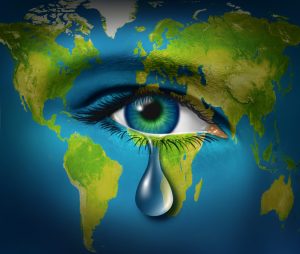
Different cultures experience different griefs or collective wounds that an individual has inherited. This can be referred to as social grief, but also according to Ivey, as “soul wounds” (2018., p.52), Historical trauma can play a key role in how an individual living in the present experiences the world and interacts with it. African American clients can experience quite a different situation from day to day interaction with others than White Americans. A simple traffic stop can have a greater traumatic effect due to racial profiling, police brutality, and social injustice. In addition, African Americans suffer the tragic legacy of slavery within their history. Following slavery, unjust and unequal economic restrictions prevented many African Americans from accumulating wealth leading to current poverty levels for many of them. These types of issues and a host of other microaggressions greatly affect African American clients.
Simple prejudice can also exist at the microlevel that many individuals do not notice. Microaggressions based on mere differences of culture and skin color exist within the world. Whether unintended or intended, these aggressions add up over time. Individuals face prejudices, looks, stares, or unkind words or opinions that can build up within them over time (Ivey, 2018, p. 52). In most cases, although, microaggressions are not intended to be harmful, they still can cause great harm and trigger the other party.
So whether it is the African American community, or the Native American community, or the LGBTQ community, various slights and soul wounds exist within their communities that affect them. Understanding these wounds and the importance of recognizing this diversity is critical in any type of counseling.
Counselor World View
Believe it or not, the counselor brings with him/herself a variety of inherent bias and world views that he/she must be aware of and attempt to filter out when counseling. Awareness of one’s own background is as key as awareness of the client’s background (Ivey, 2018, p. 52). Within this, a counselor of a particular background must be aware of his/her own beliefs and background but also how he/she appears before the client. A white male counselor may initially cause some distance between a black female client. The issue of creating trust and understanding may take longer. In this case, privilege and image play a key role. A young counselor may find struggles counseling an older client, so minimizing the status of oneself or the privileges associated with oneself can play a key role in a healthy counselor/client relationship. Unfortunately, sometimes, counselors and clients do not match, and through no fault of either, another fit may be best. Do not feel horrible if this is the case because in many cases the perception of the client regarding the counselor is key.
The client hence needs to show cultural sensitivity to race, religion, age, gender, sexuality or culture of the individual. This involves using political correct terminology (Ivey, 2018, p. 52). The counseling session should not include language that is non-inclusive that already exists in the outside world and causes distress to the client. The counseling should be professional and void of damaging language. In addition, the counselor must be extra careful in how he/she presents himself to different individuals with different backgrounds that may cause distress, either through posture, facial expressions, or words. The counselor also needs to be mindful of his/her own beliefs and maintain a neutral setting with those of extremely different views. The counselor should do his/her very best to be inclusive and open minded in listening and discussing issues that are different than his/her own religious or even moral beliefs. If bias exists, then it needs to be dismissed. A client can never be dismissed or set to the side due to cultural or moral differences. This goes against all ethical standards of counseling. If cultural differences are so great and there is no benefit in the counseling, usually the client will sense it, but if not, a counselor can help the client find a counselor that better matches the client’s needs, but again, this must be done with sensitivity, care and mutual agreement.
Conclusion
Ultimately it is the counselors job to be multicultural competent. Some counselors may be less open to this type of training but to better serve the client and cause no harm it is absolutely essential that counselors become multicultural competent.

Counselors need to be aware of different backgrounds through the RESPECTFUL MODEL, be aware of soul wounds of a particular culture and also be aware of their own beliefs and values. The counselor needs to remain neutral but educated on different backgrounds. This is not only important ethically but it also permits the counselor to better understand how different people experience the world and how they communicate it. In addition, a counselor needs to be aware of his/her own values and appearance and how that translates to a potential client.
Please also review AIHCP’s Grief Counseling Certification, as well as its Christian Counseling Certification. AIHCP also offers a host of other mental health certifications for clergy, pastoral and clinical counselors, social workers and any individuals within the Human Service fields in Crisis Intervention, Stress Management and also Anger Management. All of the programs are online and independent study and open to qualified professionals seeking a four year certification.
Also for members of AIHCP with existing Grief Counseling Certifications, please review AIHCP’s Grief Diversity Counseling Program which focuses on such issues of grief and diversity within different cultural groups.
Reference
Ivey, A. et. al. (2018). “Intentional Interviewing and Counseling: Facilitating Client Development in a Multicultural Society” (9th Ed.) Cengage
Additional Resources
Seales, J., (2022). “Cultural Competence in Therapy: What It Is and How to Find It”. PsychCentral. Access here
Farook, M. “The State of Multicultural Counseling Competencies Research”. Society for the Advancement of Psychotherapy. Access here
Gillson, S. & Ross, A. (2019). “From Generation to Generation: Rethinking “Soul Wounds” and Historical Trauma”. Biol Psychiatry. 2019 Oct 1; 86(7): e19–e20. National Library of Medicine. Acces here
Berns-Zare, I. (2021). “6 Ways to Build Multicultural Competence and Combat Racism”. Psychology Today. Access here

